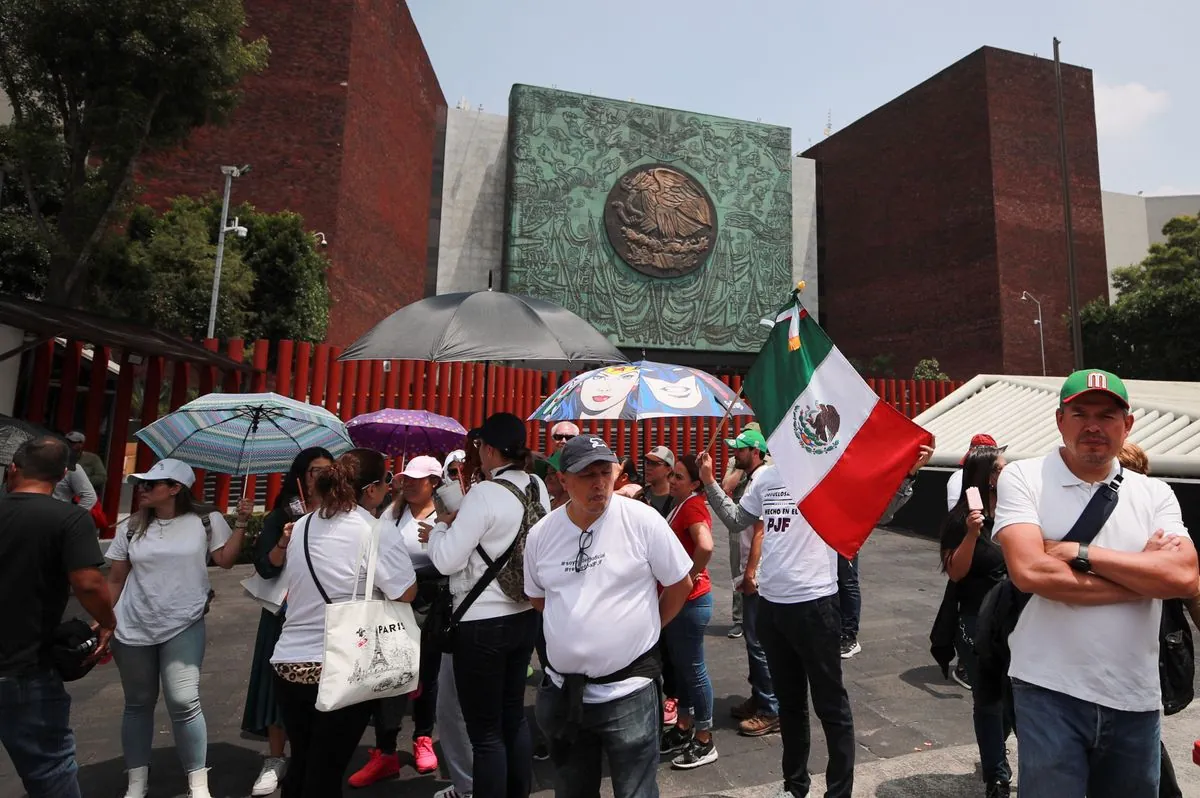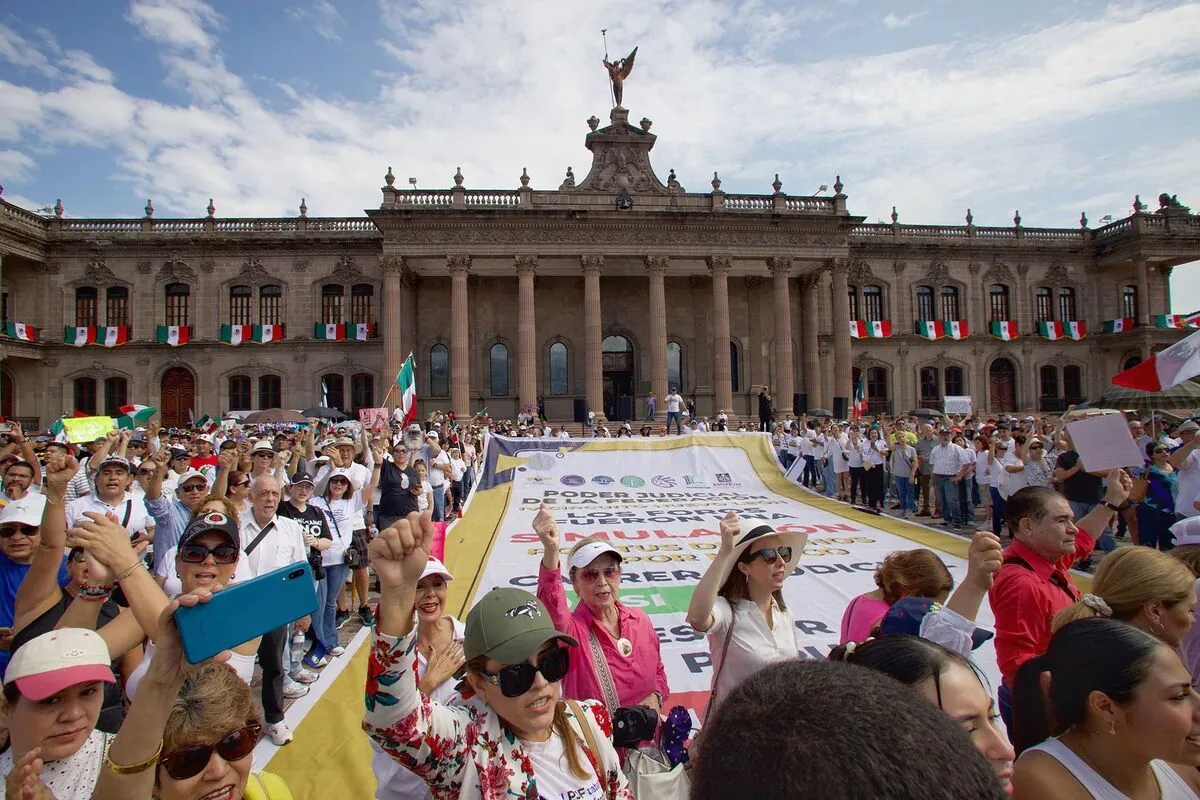Mexico's Supreme Court Joins Protest Against Controversial Judicial Reform
Mexico's Supreme Court judges join work stoppage as Congress debates judicial reform. The proposal, backed by the president, faces criticism for potentially weakening the judiciary and impacting markets.

In an unprecedented move, Mexico's Supreme Court has joined a work stoppage to protest a controversial judicial reform. This action comes as the lower house of Congress debates the proposed changes, which have sparked concerns about the potential weakening of the judiciary and its impact on the country's markets.
The reform, supported by outgoing President Andrés Manuel López Obrador and President-elect Claudia Sheinbaum, proposes significant changes to the judicial system. These include the popular election of over 7,000 judges and magistrates, reducing the number of Supreme Court judges from 11 to 9, shortening their terms to 12 years, and halving the required work experience for ministerial positions.

Proponents argue that the reform is necessary to address corruption and increase accountability within the judicial system. However, critics, including investors and the U.S. ambassador to Mexico, express concern that these changes could undermine the crucial checks and balances on executive power and potentially harm the business climate in Latin America's second-largest economy.
The decision of the Supreme Court judges to join the work stoppage, with eight votes in favor and three against, marks a historic moment in the institution's 200-year history. This action aligns with thousands of judicial workers who have been on strike, demonstrating the widespread opposition to the proposed changes within the legal community.
"This decision by the Supreme Court judges to join the work stoppage has never happened before in the institution's history."
Despite a judge's order to suspend discussions on the reform due to concerns about judicial workers' labor rights, the ruling Morena party, which holds a majority in both chambers of Congress, has dismissed this as "undue and rude interference" and proceeded with the debate.
The reform is expected to pass through Congress and move to the Senate, where the Morena party is just one senator short of the supermajority needed to approve constitutional reforms. This situation highlights the delicate balance of power in Mexico's political system and the potential for significant changes to the country's judicial landscape.
As Mexico navigates this contentious reform process, it is essential to consider the historical context of its legal system. The country operates under a civil law system, with its current constitution dating back to 1917. The Supreme Court, established in 1824, plays a crucial role in maintaining the balance of power through its ability to exercise judicial review.
The ongoing debate surrounding this reform underscores the complex interplay between Mexico's executive, legislative, and judicial branches. As the country moves forward, the outcome of this reform will likely have far-reaching implications for the future of Mexico's democracy and its position in the global economy.


































